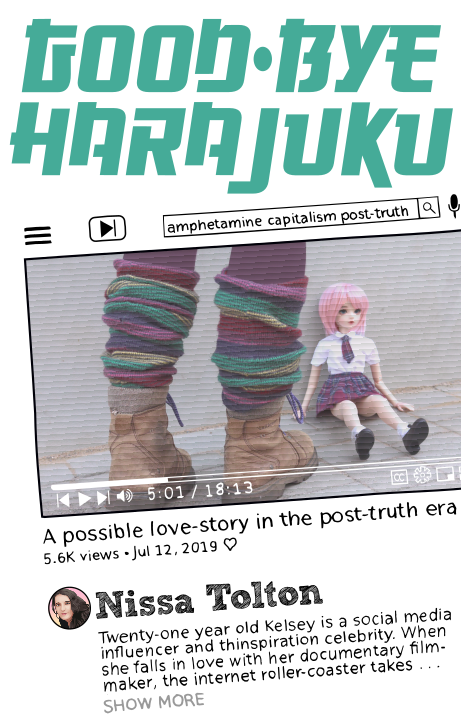Post-Truth

People are frustrated when confronted with post-truth. They don’t know what to make of it, other than it might be used to trick them or manipulate them by bad-faith actors. They are unsure how to react because they are aware that they are not being lied to. Lies are a different topic.
Post-truth is a curated presentation of the truth, for a particular purpose. It is some, but not all of the truth, that a listener needs to know in order to make a decision. Post-truth is advertising. Post-truth is political discourse. It was been with us all this time, but has seemingly only been registered as a problem now that it has been democratized by the internet.
There is no way to deny or reject post-truth. It is the way a society talks to itself. If only bad faith actors make use of post-truth, only bad faith actors participate in public debate. Higher civilization also needs supporters.
Good-Bye Harajuku is an exploration of post-truth in narrative form. It is an attempt to domesticate it. It is an attempt to have fun with it. The book shows, through many examples, how post-truth may be used and managed at a personal level.
Post-truth might be a philosophical problem, but it has practical methods.

